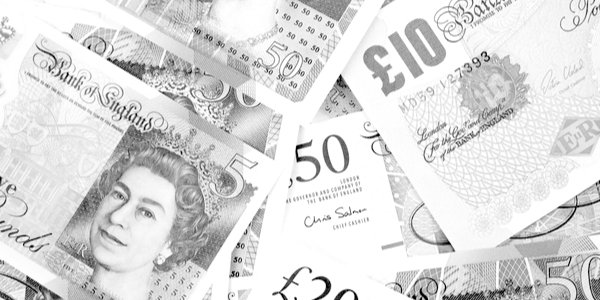WHEN I was a lad, the monthly trade figures were often the first item on the TV news, with black-and-white footage of dockside cranes unloading crates in cargo nets (no containers then). This alerted us to another looming ‘balance of payments crisis’, followed by a grim-faced Harold Wilson or Jim Callaghan or Anthony Barber announcing a devaluation of sterling to make our exports cheaper. Since then, our exports have continued to dwindle and the trade gap has widened, occasionally mitigated by our ‘invisible exports’ of services.
These days nobody bothers. Apparently, with the advent of globalisation and proliferation of free trade, it doesn’t matter if we can’t ‘pay our way’ as they used to say. Nowadays we import nearly everything manufactured and most of what is grown. The remains of Wilson, Callaghan and Barber have long since spun themselves to centrifugal disintegration. The trade figures never get a mention on TV and barely a paragraph at the back of the business pages. Such insouciance always baffled me, but I’ve only got an A-level in economics and was occupied by the day-to-day practicalities of exporting and importing until I retired.
I travelled a lot for my work and was always irked when asked for my boarding card when shopping in airports. Eventually I realised it was a VAT scam perpetrated by the retailers with the connivance of the airport operators because it enabled them to charge higher rents. In May 2015 BBC Radio 4’s You and Yours programme let me expose the scandal on air. For a few days it was a lead item in the press and on line as passengers rebelled. The retailers grudgingly relented and George Osborne promised an inquiry into the scandal. No, I didn’t hear any more about that either but at least now you can refuse to show your boarding card and Boots won’t call the police as they did for me at Heathrow.
Why hadn’t anybody else sussed this boarding card malarkey while idling in a departure lounge? Didn’t any politicians or Treasury civil servants think to query the retailers’ Gestapo-like insistence upon seeing boarding passes? Did no Barbados-bound VAT Inspector ever twig that if flying to a destination outside the EU the purchase would be an export, therefore zero-rated for VAT, so the price should be one-sixth less?
The airport rebellion hasn’t changed our balance of payments and since Harold & Co the trade gap has become continental in width and abyssal in depth. But now that President Trump has pulled several storeys out of the globalisation Jenga tower, it’s time for a rethink and some economists are questioning the wisdom of outsourcing everything to China. Which brings me to Rachel Reeves’s £40billion Black Hole, because the airport scam isn’t the only trick missed by politicians and Treasury.
If an ever-increasing Trade Gap is now a ‘bad thing’, to be discouraged like smoking and booze, why not tax it? ONS trade figures for 2024 show UK imports of (goods only total) £603billion exceeded our exports (goods only total) £358billion and resulted in a trade deficit of £245billion in goods.
An Import Excess Tax (IET) on this deficit at a rate of 10 per cent would yield £24billion. At 20 per cent it would yield about £48billion. Only businesses whose imports exceed the value of their exports would be affected. Much simpler to assess and collect than tariffs, IET would encourage import substitution and onshoring of manufacturing jobs.
Here’s how it could work:
Gadgets Ltd has sales of £10million, of which £7million are domestic and £3million export, and imports components worth £5million. Its imports therefore exceed its exports by £2million which, if taxed at 20 per cent would yield £400,000 in tax but lead to only a 4 per cent increase in prices if passed on to customers.
Nudgits plc also has sales of £10million, all domestic with zero exports, and imports raw materials worth £5million. Its imports therefore exceed its exports (zero) by £5million which, if taxed at 20 per cent would yield £1,000,000 and lead to a 10 per cent increase in prices if passed on to customers.
Widgets Ltd has sales of £10million too, of which £3million are domestic and £7million export. It imports components and raw materials worth £5million but because its exports exceed its imports by £2million it has no Import Excess Tax liability. Bravo, Widgets!
IET would not be illegal or contravene WTO rules or result in tit-for-tat tariff wars, or discriminate against individual nations, companies, trades or industries. UK consumers want these imported goods so IET will not eradicate the trade deficit but may reduce it. IET would be workable, relatively painless and politically acceptable with minimal inflationary impact.
There is fat to be trimmed off welfare and efficiencies to be found elsewhere, but this government will do neither. Loath though I am to throw them a lifeline, I don’t want to see them drive us further into penury whilst conning us that getting closer to the EU will be our salvation.
I am at heart a free-trader, but the economy’s manufacturing vs services imbalance is socially and strategically destabilising. It needs to be addressed and somehow redressed. Free-traders may baulk at IET but the British economy is structurally and geographically out of kilter.
Professional services are doing well for the well-placed, well-educated and well-paid but low-paid, low-skilled non-professional services are not. Productivity is stagnant. We need jobs that add more value to the economy than barristas, life coaches and personal trainers, worthy occupations though they may be.











